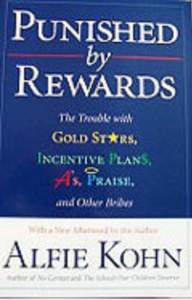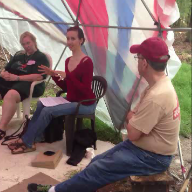FEATURED
What I’ll Delve Into Next . . .
Published September 30, 2013
 Where am I going to focus my attention next (aside from client work)?
Where am I going to focus my attention next (aside from client work)?
Here’s the overview of my idea. If you find you’re interested, I invite you to keep an eye out for more to come.
It’s been almost four weeks since I gave my presentation at the Twin Oaks Communities Conference. My presentation was on choosing a legal structure, and tax status, for egalitarian communities. You can learn about the substance of my talk, by checking out this blog post.
In order to prepare for that presentation, I had to zoom deep into the legal and tax weeds of one particular strategy. That is, I needed to research the legal and tax details surrounding one way that people might live their egalitarian or hybrid RBE values: egalitarian communities.
Unfortunately, in doing that research I ran headlong into some legal and tax challenges with the strategy. While the challenges would present little problem for some potential egalitarian community founders and joiners (whom I hope to help as clients), they could be deal breakers for others.
|
*Important Reminder* |
As detailed in my blog post talk handout, the “outside income” of professionals and others must be kept to an absolute minimum. That was a downer for my husband and I, as we had been excited about the idea of someday founding or joining an egalitarian/hybrid RBE community ourselves. The trouble for us is, at least right now, we’re pretty committed to our current “outside income” arrangements. Not that we’ve given up hope in this strategy for ourselves – not by a long shot – but we do feel a bit “blown back,” if you will, by my discoveries.
Given the above, when the conference was over, I concluded that it might be time to zooooooom out again. That is to say, before diving into the weeds of my next legal research project – or the egalitarian communities one again – I decided to back way out of the weeds.
So, my plan is to step back . . .
and take a 40,000 foot view of broader questions like:
When I imagine a “new economy” (and an RBE or “hybrid” RBE in particular), what elements or values underlying that vision are most critical in my mind?
To what extent might I want and be able to live, or otherwise promote, those values now?
How do I choose between those different “now” options?
So, if such questions interest you, keep your eyes peeled for my future posts! And feel free to contribute your thoughts in the comment area below as well!
Choosing A Legal Structure for Your Egalitarian Community (or Hybrid RBE Community)
I gave a talk over Labor Day weekend on this topic, entitled “Comparing Entity and Tax Status Options for Egalitarian Communities.”
This post summarizes the talk, by including a short, overview video clip from it (to the right), and a four page talk handout (at the bottom). The talk was for the “Legal Structures” portion of the 2013 Twin Oaks Communities Conference in Virginia.
|
*Important Reminder* |
I stuck “Hybrid RBE” into the title of this post, because I think egalitarian communities could work as hybrid resource based economy (RBE) communities. For RBE fans out there, you can see what I mean by considering the definition of “egalitarian communities”:
As described in the talk handout, “egalitarian communities” are residential income-labor-property sharing communities, which give every member an equal voice and support, but which offer more support for some, if/as need dictates. For more information, see the fuller definition of egalitarian communities, offered by the Federation of Egalitarian Communities.
Just below is the handout from the talk, with some post-talk edits. You can see a bigger version and even download the talk handout, by clicking here, or on the little black box with the upper right pointing arrow in it, located in the upper right corner below of the document window below.
Hope this information is of value to you, as you research egalitarian and/or hybrid RBE community options!
No Title
No Description
Join me at Twin Oaks Communities Conference?
DISCLAIMER: On this website and in my blog posts, I offer nothing more than expressions of opinion and general information, which could be inadequately researched, inapplicable to your situation, out-of-date, and/or mistaken. No statement on my website or blog posts is intended to guarantee any particular outcome for you, or to constitute any kind of advice, legal or otherwise. “Advice” is meant to be customized to your particular circumstances, current, accurate, and offered in direct relationship with a qualified professional. I do offer legal advice, but only within the context of attorney-client relationships, which are formed exclusively via written attorney-client fee agreements, not through blog posts, website pages or communications, or any other means whatsoever.
I’m really looking forward to speaking at the Twin Oaks Communities Conference, in Virginia, on Labor Day Weekend. This will be my first time. My whole family will be in attendance, and we’re excited! We hope to see you there too!
The Twin Oaks Communities Conference introduces people to the concept of living in an “intentional community.” That said, I’m guessing most people who attend are most interested in intentional communities that are set up like Twin Oaks is – that is, income-sharing communities. Income-sharing communities are also called “egalitarian communities,” or, a term many dislike, “communes.” Check out this video to learn more about Twin Oaks, and get a flavor of how a low-tech version of one of these communities works, generally.
And, to learn more:
- About the many forms an “intentional community” can take, check out this site;
- About income-sharing, egalitarian communities specifically, check out this site;
- About the conference, check out this video, which I found fascinating; and
- Also about the conference, check out this reading material.
The topic I’ll be speaking on at the conference?
I’ll be discussing legal and tax considerations in forming and running 501(d) income-sharing communities.
In future posts to come, I’ll talk more about 501(d) income-sharing communities. But, for now, I’ll just say this. Basically, a 501(d) income sharing community is a community/corporation that has secured 501(d) federal tax treatment. More generally, it’s a community of like-minded member-residents, who generate most of their income through group endeavors/businesses, hold their income in a common treasury, pool/share most of their resources and property, and thereby create an environment of equality and secure mutual support, while drastically limiting their income requirements. Although 501(d)s are called “religious or apostolic,” so far my research suggests that these communities can be, and often are, organized around secular beliefs that are strongly, or “religiously” held.
I’m particularly interested in helping clients create such communities when they have a secular, resource based economy, gift economy, open-source/creative-commons-property-generating focus. It’s been fascinating to brainstorm and research exactly how to best structure such communities with this kind of focus, from a legal and tax perspective.
So far, my favorite legal/tax structure is a corporation, typically mutual benefit, organized at the state level, which then successfully applies for 501(d) tax status with the IRS. However, this may not be the only option. But I’ll be learning and posting more on this topic in the future.
In any event, I hope you can join me at the conference! There are a variety of accommodations, including an on-site camping option, which my family and I found very affordably priced. To learn more about accommodations, click here. To register, click here.
Hope to see you there!
By Tiffany Clark, an attorney working and living in Sacramento, CA, with her beloved husband, two sons, cat and dog. You can find out more about Tiffany at www.tiffanyclarklaw.com.
Gift Economy or Resource Based Economy = Attachment Economy?
DISCLAIMER: On this website and in my blog posts, I offer nothing more than expressions of opinion and general information, which could be inadequately researched, inapplicable to your situation, out-of-date, and/or mistaken. No statement on my website or blog posts is intended to guarantee any particular outcome for you, or to constitute any kind of advice, legal or otherwise. “Advice” is meant to be customized to your particular circumstances, current, accurate, and offered in direct relationship with a qualified professional. I do offer legal advice, but only within the context of attorney-client relationships, which are formed exclusively via written attorney-client fee agreements, not through blog posts, website pages or communications, or any other means whatsoever.
Have you ever noticed how much more stressed you feel doing bills, compared with cuddling with your children, or with someone else you love?
My new theory is that doing bills, is to gift economy transactions, as cry-it-out parenting, is to attachment parenting. Doing bills and cry-it-out parenting involve separation and conditional giving, whereas attachment parenting and gift economies generally involve closeness and unconditional giving. (Note: I see a “resource based economy,” which I’ve referred to much on this site, as one type of gift economy.)
I’m a big fan of attachment parenting, and a growing fan of gift economy solutions generally as well. I say “gift economy solutions generally,” because arguably an attachment parenting family is a miniature gift economy.
Attachment parenting involves unconditionally meeting babies’ and/or children’s intense needs for closeness, responsiveness, touch, nourishment, etc., with full-term breastfeeding, co-sleeping, baby wearing, etc..
For some indication of the vast array of scientifically proven benefits from attachment parenting, for children and parents alike, check out my site www.family-life-possibilities, “The Science of Parenting,” by Margot Sunderland, “The Attachment Parenting Book,” by Dr. William Sears and co-author, and “Sleeping with Your Baby,” by Dr. James McKenna.
But really, in both attachment parenting families and wider gift economies, we give unconditionally (and experience resulting closeness).
We trust that when human beings have their needs met unconditionally, they naturally ascend Maslow’s hierarchy of needs, landing at the top, stress-free and full of the highest possible ability and enthusiasm about contributing to others. And this trust isn’t just wishful thinking, but has scientific backing. We do better, both individually and in terms of innovative contribution, when our needs are met by design rather than contingently, and we collaborate closely and synergistically, rather than compete as separate individuals or units. To understand the rigorous scientific support for this statement, see the books “No Contest” and “Punished by Rewards,” both by Alfie Kohn and “Drive” by Dan Pink.
So sign me up, for an “attachment economy,” a “gift economy,” a “resource based economy,” or whatever else we want to call it. The bottom line is that I want to live like family with you all, with unconditional giving and closeness. Hopefully you do too, and we’ll all get there soon, even if it starts with just small groups of us creating communities that reflect these values. Here’s to that, to you, and to us!
By Tiffany Clark, an attorney working and living in Sacramento, CA, with her beloved husband, two sons, cat and dog. You can find out more about Tiffany at www.tiffanyclarklaw.com.
“Moment-in-Time” Blog Posts?
DISCLAIMER: On this website and in my blog posts, I offer nothing more than expressions of opinion and general information, which could be inadequately researched, inapplicable to your situation, out-of-date, and/or mistaken. No statement on my website or blog posts is intended to guarantee any particular outcome for you, or to constitute any kind of advice, legal or otherwise. “Advice” is meant to be customized to your particular circumstances, current, accurate, and offered in direct relationship with a qualified professional. I do offer legal advice, but only within the context of attorney-client relationships, which are formed exclusively via written attorney-client fee agreements, not through blog posts, website pages or communications, or any other means whatsoever.
So, I’ve been struggling with how to blog.
On the one hand, I’ve told myself I need article-like posts. That is, I’ve told myself that my posts need to be ones readers would consider thorough, complete, conclusive, and deeply researched. What I might call “mini-books.”
The trouble is, mini-books take time to write. And, as a part-time lawyer, with many things on my plate, this time is difficult to come by.
So, if I insist on only publishing article or book-like posts, I’ll rarely post, bottom line.
And what’s the problem with rarely posting?
Well, there are several I see.
One is, less posting means less connection with others, less dialogue about the big ideas related to my practice. And more connection is something I’ve really been longing for.
What I have found is that deep connection requires frequent, transparent, less conclusive, more open-to-input, more back-and-forth communications. It requires more question-focused than conclusion-focused discussion. It requires presentation of ideas that’s almost journal-like in its openness and self-questioning approach.
In other words, I see connecting communication as that which says, “Hmmmm . . . this is what I’ve been mulling over lately. Here’s where my thinking is at the moment. But, I don’t know for sure. What do you think?”
I see connecting communication as that which doesn’t pretend to have all the answers.
For will any of us ever have all the answers? And if we never communicated with anyone until we did, would we ever communicate at all?
Not likely, I fear.
So, well, I believe I’ve utterly convinced myself to give a go at more “moment-in-time” blogging. Not to say I’ll never go back, or never publish a mini-book like post. But, I’m going to give this new idea a try.
Thanks for reading. Assuming this plan isn’t itself just a “moment-in-time” aberration, I expect I’ll be posting again relatively soon! 🙂
By Tiffany Clark, an attorney working and living in Sacramento, CA, with her beloved husband, two sons, cat and dog. You can find out more about Tiffany at www.tiffanyclarklaw.com.
Honor Aaron Swartz with Open Access
Post edited most recently on May 7, 2013
DISCLAIMER: On this website and in my blog posts, I offer nothing more than expressions of opinion and general information, which could be inapplicable to your situation, out-of-date, and/or incorrect. No statement on my website or blog posts is intended to guarantee any particular outcome for you, or to constitute any kind of advice. “Advice” is meant to be customized to your particular circumstances, current, accurate, and offered in direct relationship by a qualified professional. I do offer legal advice, but only within the context of attorney-client relationships, which are formed exclusively via written attorney-client fee agreements, not through blog posts, website pages or communications, your communications with me (via post comments, my contact page, or otherwise), or any other means whatsoever.
 “While questions remain about how to pay for it all . . . many agree with Swartz’s belief that the information should be open.”
“While questions remain about how to pay for it all . . . many agree with Swartz’s belief that the information should be open.”
Paraphrase of statement by Steve Jones, a communications professor at the University of Illinois at Chicago, from “Aaron Swartz’s Suicide Puts Internet Openness in Spotlight,” by John Keilman and Sally Ho, Chicago Tribune, January 15, 2013
I don’t know about “should,” but I think it would benefit us all if more information was shared. And I don’t believe the “how to pay for it” issue need be an insurmountable barrier.
I am so grateful to Aaron Swartz for his work in this area, and so saddened about his passing.
Swartz was an internet innovator and tireless advocate for open access information. He reportedly committed suicide, overwhelmed by depression and concerns about the criminal prosecution he faced. His prosecution was related to his efforts to get protected academic journal articles to the masses. It might have resulted in a felony conviction and decades of imprisonment.
In the aftermath of Swartz’s death, many have called for legal system reforms. And I fervently hope such reform takes place.
Many have also called for more open access information.
To that end numerous academics have given open access to their academic articles, in Swartz’s honor. I hope that more academics take up the cause, and do whatever each of them can to exponentially grow the open access academic articles movement.
And I join the call for more open access information generally. Just imagine how many more life-altering technologies could be created for everyone, if high-quality information was easily accessible to every potential innovator. And this is just one of the potential benefits of more open access information.
But how do we get there?
And how do we answer the “questions . . . about how to pay for it all”?
My favorite idea is the creation of a Resource Based Economy (RBE). Imagine a critical mass of people agreeing to share access to property, utilizing technology to create a high quality of life for all? Imagine a money-free world, in which all the insecurity, crime, inefficiencies, and distractions related to money were eliminated. Although it may sound counter-intuitive, evidence suggests that innovation could skyrocket, and everyone’s quality of life could increase dramatically. For more details on this evidence, see my blog post “Why a ‘Sharing Law’ Practice?”
Meanwhile, let’s support and contribute to open access information as much as we legally can in our current economy. For someone like me, this might mean just making my blog posts freely available for all to read.
How might you support and contribute to open access information, or its parallel: open source hardware and software?
As Clay Shirky explains, even in today’s stressed economy there is a great deal of “cognitive surplus” floating around. What if you were to use yours to regularly blog, do free online radio shows, or contribute to many of the many online open source hardware and software communities?
Because there are free ways to do all of these things now, the only cost need be some of your spare “cognitive surplus” time. And what a fulfilling way to use that time, building community and working towards a world that could serve us all better.
Do it for yourself, do it for the future, do it for Aaron Swartz.
Why a “Sharing Law” Practice?
Post edited most recently on May 7, 2013
DISCLAIMER: On this website and in my blog posts, I offer nothing more than expressions of opinion and general information, which could be inapplicable to your situation, out-of-date, and/or incorrect. No statement on my website or blog posts is intended to guarantee any particular outcome for you, or to constitute any kind of advice. “Advice” is meant to be customized to your particular circumstances, current, accurate, and offered in direct relationship by a qualified professional. I do offer legal advice, but only within the context of attorney-client relationships, which are formed exclusively via written attorney-client fee agreements, not through blog posts, website pages or communications, your communications with me (via post comments, my contact page, or otherwise), or any other means whatsoever.
There are so many reasons I decided to start a “sharing law” practice.
But, first, what is “sharing law”? Sharing law is a concept created originally by a fellow attorney, Janelle Orsi.
It’s about helping clients create entities and other arrangements that promote the sharing of power, income, labor, and personal, real, and intellectual property.
That said, my emphasis is on helping people share in ways that I believe can help promote what I’ll call “Resource Based Economy values” (RBE values; for more on why, and what an RBE is, see farther down in this post). That is, I focus on helping those who want to promote:
- Sharing with the public at large, rather than just within narrow, privileged groups of people;
- Sharing via voluntary gifting, rather via money, demand, and/or exchange-based interactions;
- Sharing though non or minimally hierarchical structures; and
- Sharing in optimally labor-saving ways, via use of safe and sustainable technology.
I’m talking about using legal tools to create everything from open source hardware and software groups, like Open Source Ecology, to higher-tech, public-sharing focused versions of 501(d) communities like Twin Oaks, which themselves share income and housing; from groups that assist in promoting RBE values, like Creative Commons, to land trusts that preserve land for the furtherance of these values; from local lending libraries that loan out such things as tools, phones, computers, and/or 3-D printers; to high-tech community gardens that offer food to all, free of charge.
But why?
First, I want to help people survive, and even thrive, through worsening economic conditions. My primary concern is that the US dollar may soon either collapse, or undergo hyper or near-hyper inflation. I expect this to result in either massive scarcity of dollars while wages plummet and unemployment skyrockets, or much higher prices for everything while wages remain stagnant and unemployment increases. In either case, I fear many, many more of us will experience conditions of extreme poverty. For background information on this topic, I recommend the books Currency Wars: The Making of the Next Global Crisis, by James G. Rickard, and Paper Money Collapse, by Detlev Schlichter, as well as a thirty minute radio show interview I conducted of my husband, self-taught currency expert. You can listen to this interview by clicking on the icon to the left.
I believe sharing law could help people through such economic challenges, and hopefully ultimately into a totally different economic system. My current favorite idea for a new economic system is a “Resource Based Economy” (as the Venus Project envisions it, with some caveats that I’ll discuss in a future blog post, such as governance via a hybrid direct democracy/meritocracy). For a brief outline of the Venus Project’s vision, check out the video to the right.
Second, for many, many reasons, I want to live in a world where we all treat each other like family.
What do I mean by “treat each other like family”?
When it’s dinner time at my house, we don’t charge each other for our contributions to meal-making. We give and receive freely.
In that kind of environment, I believe we could all relax, thrive, and maximally contribute in every way to others.
It turns out, contrary to common belief, humans are motivated to contribute most when they have their needs met as a given, and they are simply seeking purpose, mastery, or autonomy (at least when it comes to motivation to do anything beyond the most rudimentary tasks which, in this day and age, could all be automated). For a short animated video outlining the studies supporting this finding, look to the left.
When are needs are met by default, the “purpose” that we often seek is others’ well-being, out of empathy. Empathy is when we feel what others are going through. To learn more about the evidence for empathy being our natural state, check out the video to the right.
Humans don’t contribute as well, by contrast, when individuals needs only get met unequally and/or contingently.
When people have their needs met unequally, none of us can contribute as well. For example, the more unequal a society, the more people suffer from mental disorders such as chronic anxiety (see link below), which can interfere with the full functioning of the neo-cortex. The neo-cortex contains the area of a the brain that empathizes with others, and can motivate contribution to others out of that empathy. For more about empathy and the neo-cortex, see the above left video, and the book Mindsight, by Dr. Daniel Siegel. Indeed, evidence suggests that one of our more basic needs is equality. And it’s a need which is sorely unmet in the United States especially. For a 16 minute TED video describing recent studies about how critical equality is to public health, and implicitly critical to human abilities to contribute fully, across the income spectrum, click here.
 And when our system only meets people’s needs contingently, we can’t contribute as well either. That is, when our system operates by holding out the carrot (or “reward”) of meeting our needs only if we participate in certain ways in our economy, and the stick (or “punishment”) of letting our needs go unmet otherwise, our ability to contribute is negatively impacted, and other unwanted outcomes occur as well. Hundreds of studies show that punishments and rewards both result in lower levels of creativity and innovation. They also result in lower levels of retention, interest and enthusiasm, and either rebellion on chronically anxious compliance, all of which negatively impact quality of contribution, as well as quality of life. For details, see the book Punished by Rewards, by Alfie Kohn, and click on the book’s image to the right to read more about it.
And when our system only meets people’s needs contingently, we can’t contribute as well either. That is, when our system operates by holding out the carrot (or “reward”) of meeting our needs only if we participate in certain ways in our economy, and the stick (or “punishment”) of letting our needs go unmet otherwise, our ability to contribute is negatively impacted, and other unwanted outcomes occur as well. Hundreds of studies show that punishments and rewards both result in lower levels of creativity and innovation. They also result in lower levels of retention, interest and enthusiasm, and either rebellion on chronically anxious compliance, all of which negatively impact quality of contribution, as well as quality of life. For details, see the book Punished by Rewards, by Alfie Kohn, and click on the book’s image to the right to read more about it.
Just take a look at our society. People suffer from pervasive anxiety about whether they have “enough,” which leads to behavior many label as “greedy,” resulting in a “stop at nothing” approach, the take-over of our political system by the wealthy and powerful, a banking system where bankers create money out of nothing and charge the rest of us interest for that service (see the Money as Debt documentary series), and an increasing and incalculable loss of human fulfillment and potential that hurts us all. In addition, most crimes are, directly or indirectly, a product of people seeking money. And, in their frantic scramble for an ever-illusive sense of security, people are motivated to convince us to buy things we don’t need, and budget and design those things to break quickly, which creates waste and perpetuates poverty. And on it goes.
And it doesn’t need to be this way . We can have optimal human fulfillment as a given, and optimal productivity. Indeed, as indicated by the research I alluded to above, these things actually go together perfectly, when needs are met by design. Not only is technology at such a state that we could meet all human needs, with little to no human labor, but if we set up our system to do this, whatever human labor we did need would be of higher quality, due to the phenomena I discussed above.
With a sharing law practice, I hope to help clients make their economic lives look more like their family lives – places where equality, and met-needs are the norm. Sharing “stuff” allows us to meet more needs overall, with fewer resources. Sharing power and income allows us to reap all the public health benefits of equality. And sharing intellectual property helps us innovate more rapidly and get the bounty of that sharing to more and more people who would otherwise go without. See the book No Contest, by Alfie Kohn, to get a better idea of how much more effectively we can produce when we collaborate rather than compete, and read about the open source software movement to see understand more about how this has in fact happened in practice.
Regarding sharing stuff, for example, in one housing community with 84 adults, they share just 18 cars and car-related errands.
The result?
Multiple car options are available for each adult’s use, they don’t need to drive as often to get their errands done, they live in a state of equality, and much less money and time is required to support their transportation needs. For a video about this community, a somewhat “low-tech” version of the kinds of 501(d) communities I’d like to help form, look to the left.
Another big reason that I’m practicing sharing law, is because I want to help idealistic young people, like the many I met in my months volunteering for Occupy Sacramento. I want livelihood options for them that don’t involve the traditional path of acquiring massive student loan debt, then being tempted to opt for corporate jobs that take all the oxygen out of their once hopeful hearts and minds.
Now, I’m under no illusion that I’ll change the whole world with my sharing law practice. But practicing sharing law meets my needs for contribution to development of the kind of world I hope to see, and for human well-being along the way. And, given my particular skill set, practicing sharing law feels like a way I can uniquely contribute to this end.
Tiffany Clark, is an attorney working and living in Sacramento, CA, with her beloved husband, two sons, cat and dog. You can find out more about Tiffany at www.tiffanyclarklaw.com.

